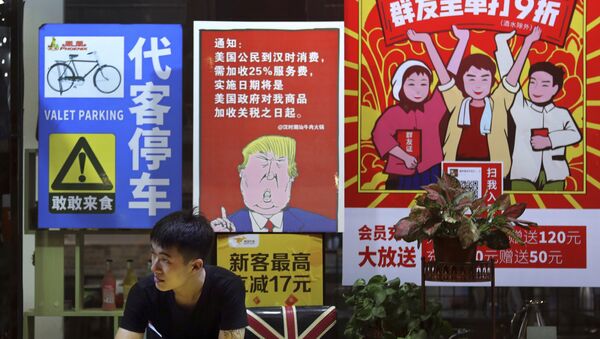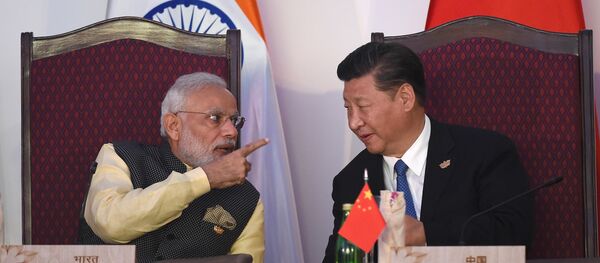The consequences of a large-scale US-China trade war could be much tougher for American households than for Chinese ones, says a report by the South China Morning Post.
Thursday marks the end of a public comment period on possible 10 percent US tariffs on $200 billion of Chinese imports, which could become the biggest blow yet in the huge trade spat between the two economic giants.
However, such a move is understood to drain the purses of American shoppers, as US import tariffs target Chinese-made consumer goods, from refrigerators and freezers to cutlery and towels, prompting manufacturers to increase prices to make up for the losses.
READ MORE: China Reducing US Oil Orders, Likely to Consider Alternate Suppliers – Economist
Beijing, in turn, has threatened to hit back at the possible move with increased levies on S$60 billion of US imports, including on yachts, riding crops, and false beards. "Mostly, it's going to be absorbed by Chinese corporates instead of consumers," Larry Hu, an economist with Macquarie Securities, said, as cited by the SCMP. "At the bottom line, the direct impact is very small."
According to government data, the United States posted a $335 billion trade deficit with China last year. US imports of goods from China stood at $505 billion and largely included tech products, household furnishings and clothing.
China imported $130 billion worth of American products, including soybeans, aircraft, machinery and plastics, which means that China has comparatively fewer US imports to tax. This would lead Beijing to seek other retaliatory measures, including the tougher regulation of US businesses in China, which wouldn't directly affect consumers.
The trade conflict between the two countries escalated after the United States adopted a protectionist posture on trade and slapped tariffs on $34 billion in steel and aluminum imports from China. The Asian nation has promptly counterpunched with tariffs on the same value of US imports.
On July 10, the Trump administration revealed that it would slap 10 percent tariffs on some $200 billion in Chinese goods as a follow-up to China's retaliation. US Trade Representative Robert Lighthizer said in a statement that the move was considered to curtail the alleged theft of US intellectual property by Chinese firms. The Chinese government has warned it would hit back with trade restrictions of equal measure if Trump goes ahead with the threat.





